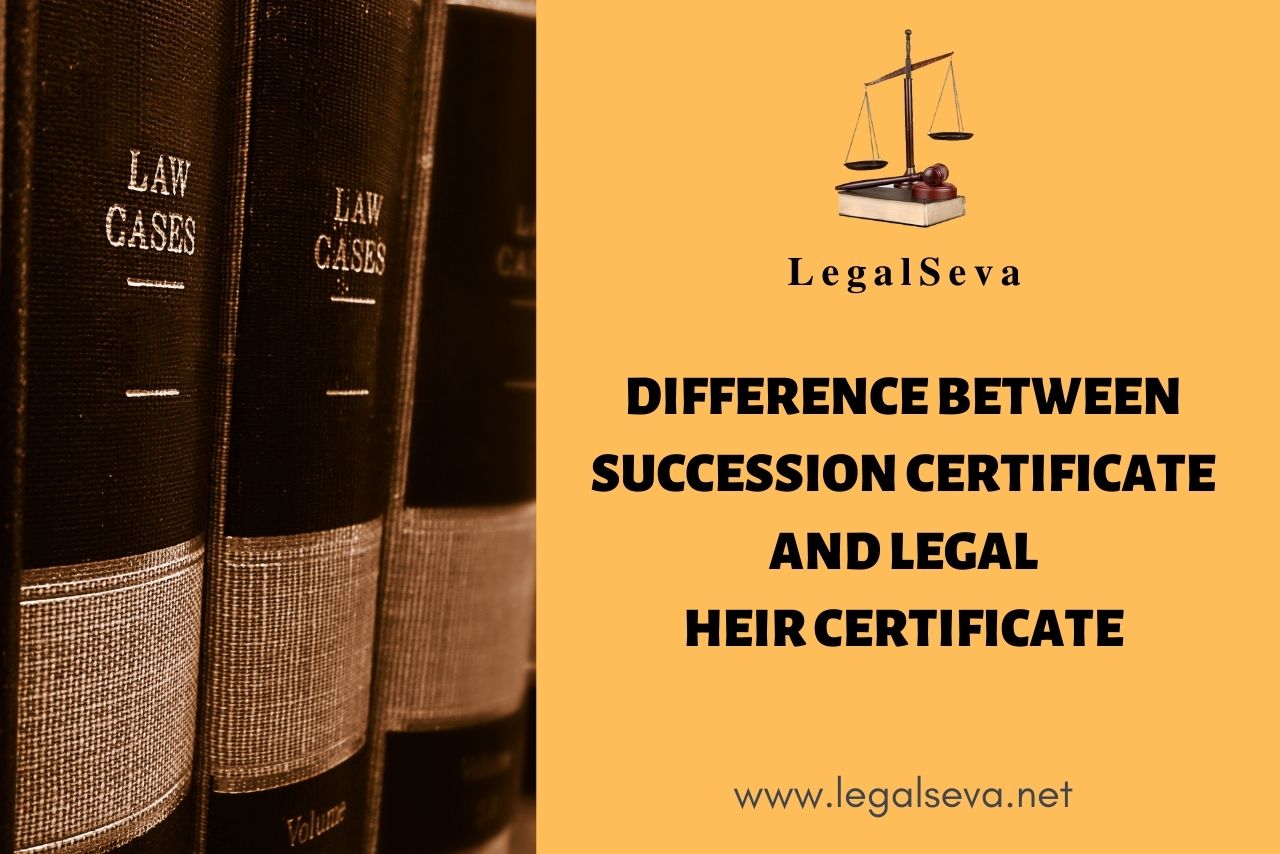Last Updated on September 16, 2020 by Satish Mishra
In this post we will have the difference between the two: Succession Certificate & Legal Heir Certificate for Chandigarh Panchkula Mohali Zirakpur Kharar Derabassi Baltana etc. but let us have the definition of Succession Certificate & Legal Heir Certificate first.
Succession Certificate- It is defined as a document that is issued by a civil court to the legal heirs of a deceased person authorizing a valid and a rightful person to succeed over the deceased person. This does not apply to immovable properties. Succession Certificate is defined under the Indian Succession Act, 1925.
Legal Heir Certificate- It is a certificate that is issued by the tehsildar of the district that he has jurisdiction in to the legal heir of the deceased person.
Purpose
Succession Certificate- The purpose of succession certificate is restricted to shares, debts and other securities of the government, either central or state that the deceased person was entitled to.
Also read: Viewpoint | Meaning and significance of succession certificate
Legal Heir Certificate- The purpose is same as that of a succession certificate but broader. This serves the purpose of establishing the inheritance and aiding in the transfer of any kind of shares or debts that the deceased person was in charge of.
Also read:
Legal Heir Certificate – Overview & Format Download – ClearTax
Objective
The Objective of the Succession Certificate is the settlement of any property which is considered to be under dispute, litigation and so on.
Legal Heir Certificate aims to establish a relationship and pass on the rights to the legal heirs rather than creating any obligation.
Rights
- The rights of a succession certificate holder is extensive in the sense that every payment made by the holder of the certificate on behalf of the deceased would be considered valid. Legal Heir Certificate is limited to insurance claims and soon.
- Succession Certificate acts as a valid proof under succession laws and the holder can become the beneficiary of the property of the deceased. The same does not apply to a legal heir It does not serve as a conclusive and a valid evidence under succession laws.
Who can apply-
Succession Certificate– Only the certified legal heir can apply.
Legal Heir Certificate– Spouse, parents of the deceased, son or a daughter can apply.
Documentary Evidence required-
Succession Certificate– Date and time of death along with the death certificate, names of the legal heirs and their relationship to the deceased.
Legal Heir Certificate– Original Death Certificate, Government ID proof, Names of family members and their relation to the deceased, affidavit on a stamp paper, and other IDs such as the Ration Card.
Both these certificates are usually issued within a period of fifteen to forty days.
Also read: Difference between legal heir certificate & succession certificate
Fees-
Succession Certificate– The fee for obtaining succession certificate is 3% of the total value of the property
Legal Heir Certificate– The fee for obtaining a legal heir certificate is Rs. 20 for the stamp paper and the stamp of value of Rs, 2.
Clearly, Legal Heir Certificate is easier to obtain.
Issuing Authority-
Succession Certificate– The succession certificates are issued by any civil vourt to the legal heirs of the deceased, provided the courts are convinced of the same.
Legal Heir Certificate– The party has to approach the Tehsildar of the district in which they are residing and to which the Tehsildar has jurisdiction to. The party has to identify as the legal heirs of the deceased person and must convince the Tehsildar of the same with sufficient documentary evidence.
Also read: SUCCESSION CERTIFICATE DISTRICT COURT CHANDIGARH PANCHKULA MOHALI
Procurement- Succession Certificate-
- The legal heir is expected to approach a competent civil court and file a petition for the procurement of the certificate.
- The District Judge within whose jurisdiction the deceased person resided at the time of his death may grant the succession certificate provided the documentary evidence as enumerate below is provided.
- The documentation required are–
- Name of the party
- The party’s relationship with the deceased
- The heirs of the deceased
- Time, Date and place of death of the deceased
- Death Certificate
- The Civil Court after the examination of the petitioner’s claims issues a notice to the parties and the newspaper and specifies a time uptil which objections can be raised.
Also read: Difference between legal heir certificate and succession …
If there is no objection raised then the court passes an order to issue a succession certificate to the party.
- If there is more than one party, then they maybe jointly issued a certificate.
Legal Heir Certificate
There is no specific procedure for obtaining a legal heir certificate but is only issued by the tehsildar.
For case specific advice on succession matters related to Succession Certificate, Legal heir certificate one may contact top/best expert Hindu law Lawyers in Chandigarh Panchkula Mohali Zirakpur Derabassi Kharar Mullanpur Baltana.
This post is written by Haritha Dhinakaran. More on 99888-17966 .

